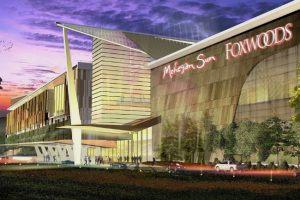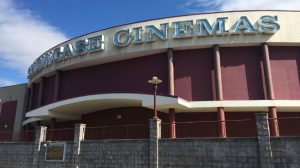 The town of East Windsor in Halford County, Connecticut, is preparing for a public hearing that could potentially scrap the license of a tribal gambling venue in the area, paving the way for a more competitive bidding for the rights to build the first casino off tribal ground in the state.
The town of East Windsor in Halford County, Connecticut, is preparing for a public hearing that could potentially scrap the license of a tribal gambling venue in the area, paving the way for a more competitive bidding for the rights to build the first casino off tribal ground in the state.
Last year, Connecticut lawmakers decided to allow the Mashantucket Pequot and the Mohegan tribes to jointly build the first commercial gambling venue in the East Windsor area. This approval was followed by a proposition on behalf of MGM Resorts International to erect another casino in the town of Bridgeport.
The legislators attempted to push for a more open competition last year but to no avail. Things got heated up after the MGM Resorts International obtained an approval by the authorities of Springfield, Massachusetts to start the construction of a $960 million casino resort complex which is to be located just miles away from Connecticut’s state capital Hartford.
The prospect of another casino being built in such a close proximity aroused concerns that it would take away potential customers from the casinos the tribes operate in south-eastern Connecticut as they would drive to MGM Springfield when the resort opens doors in September 2018. This would lead to Connecticut losing both revenue and job positions associated with the gambling industry.
The two tribes proposed to build a gambling venue jointly in East Windsor which is located outside their reservation land. The main problem here was that federal law allowed tribes to operate gambling establishments only on tribal land, i.e. within the borders of their reservations. Despite that, the tribes were allowed to build the venue as it was expected to give the local economy a boost.
The Provisions of the Bill
 The bill that will be the subject to a public hearing next week may scrap the two tribes’ license for building their gambling venue in the town of East Windsor. The purpose of this piece of legislation is to enhance competition as it involves a two-step process consisting of seeking bids and selecting from them.
The bill that will be the subject to a public hearing next week may scrap the two tribes’ license for building their gambling venue in the town of East Windsor. The purpose of this piece of legislation is to enhance competition as it involves a two-step process consisting of seeking bids and selecting from them.
Preparations for the $300 million tribal casino in East Windsor are already underway as last week the two Connecticut tribes proceeded with the demolition of an old movie theater at the site where their gambling venue is to be located. However, their leaders have confirmed they do not intend to start construction until the issue with the casino expansion is resolved, which is expected to happen either in late spring or in early summer this year.
Meanwhile, the bill has already attracted support from delegations from New Haven and Bridgeport. One of the key provisions of this piece of legislation requires prospective casino licensees to pay a non-refundable licensing fee amounting to $50 million as well as to contribute to the state economy with 25% of gross gambling revenue each year.
The potential licensees would also have to set aside the additional 10% of their gross revenue from slot machines for the funding of educational cost-sharing grants for the area. The bill also calls for the gambling venues to hire at least 2,000 employees from the local community. If the legislation is approved, the Connecticut Department of Consumer Protection will start accepting the bids by January 2019. The public hearing regarding the bill is to take place on Thursday next week.



















